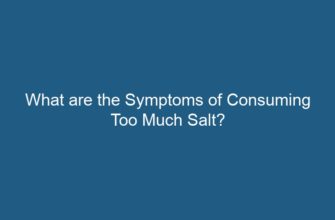Swollen legs can be a common problem for many individuals, causing discomfort and hindering mobility. While there are medications available to alleviate the symptoms of swollen legs, some people prefer to explore natural remedies to address this issue. In this article, we will delve into various natural remedies that may help reduce swelling in the legs, as well as provide tips for prevention and when to seek medical attention.
- 1. Understanding the causes of swollen legs
- 2. Stay active and exercise regularly
- What are causes of swelling in the legs? & Home-remedies
- Herbal Cures for Swelling
- 3. Elevate your legs
- 4. Compression therapy
- 5. Massage therapy
- 6. Herbal remedies
- 7. Essential oils
- 8. Dietary changes
- 9. Cold and warm compresses
- 10. When to seek medical attention
- Conclusion
1. Understanding the causes of swollen legs
Before we explore natural remedies, it is important to understand the underlying causes of swollen legs. Swelling in the legs can be a result of various factors, including:
- Poor circulation
- Fluid retention
- Inflammation
- Injury or trauma
- Heart or kidney problems
- Side effects of medication
Identifying the root cause of your swollen legs can help determine the most effective natural remedies for your specific situation.
2. Stay active and exercise regularly
Engaging in regular physical activity and exercise can help improve circulation and reduce swelling in the legs. Some beneficial exercises include:
- Walking or jogging
- Swimming
- Bicycling
- Yoga or Pilates
These activities help promote blood flow and lymphatic drainage, preventing fluid from accumulating in the legs.
What are causes of swelling in the legs? & Home-remedies
Herbal Cures for Swelling
3. Elevate your legs
Elevating your legs can help reduce swelling by allowing fluid to drain away from the legs. When sitting or lying down, place a pillow or cushion under your legs to raise them above the level of your heart. This simple technique can provide immediate relief and prevent further swelling.
4. Compression therapy
Compression therapy involves wearing compression garments, such as stockings or sleeves, that apply pressure to the legs. This pressure helps improve blood circulation and prevent fluid buildup. Consult with a healthcare professional to determine the appropriate level of compression and type of garment for your condition.
5. Massage therapy
Massage can be a soothing and effective natural remedy for reducing swelling in the legs. Massaging the legs helps stimulate blood flow and lymphatic drainage, promoting the removal of excess fluid. Use gentle, upward strokes towards the heart while massaging to enhance circulation.
6. Herbal remedies
Several herbs have been traditionally used to reduce swelling and promote healthy circulation. Some commonly recommended herbs include:
- Horse chestnut
- Ginkgo biloba
- Butcher’s broom
- Bilberry
- Gotu kola
These herbs can be consumed as supplements, used topically in creams or ointments, or brewed into teas. However, it is important to consult with a healthcare professional before using herbal remedies, as they may interact with certain medications or have contraindications.
7. Essential oils
Some essential oils possess anti-inflammatory and circulatory-stimulating properties that may help reduce swelling. Popular essential oils for swollen legs include:
- Peppermint oil
- Lavender oil
- Cypress oil
- Lemon oil
- Chamomile oil
These oils can be diluted with a carrier oil and massaged onto the legs, or added to a warm bath for a relaxing soak. Ensure to perform a patch test before using essential oils to check for any allergic reactions.
8. Dietary changes
Modifying your diet can also play a significant role in reducing leg swelling. Some dietary tips to consider include:
- Reducing salt intake, as excessive sodium can contribute to fluid retention
- Incorporating foods rich in potassium, such as bananas, leafy greens, and avocados, as potassium helps regulate fluid balance
- Consuming foods with anti-inflammatory properties, such as ginger, turmeric, and fatty fish
- Staying hydrated by drinking an adequate amount of water throughout the day
9. Cold and warm compresses
Applying cold or warm compresses to the legs can help reduce swelling and provide relief. Cold compresses constrict blood vessels and reduce inflammation, while warm compresses promote blood flow and relax muscles. Alternate between cold and warm compresses for optimal results.
10. When to seek medical attention
While natural remedies can be effective for mild cases of swollen legs, it is important to seek medical attention if:
- The swelling persists or worsens
- There is severe pain or discomfort
- There are signs of infection, such as redness, warmth, or pus
- Other concerning symptoms accompany the swelling
A healthcare professional can evaluate your condition, identify any underlying causes, and recommend appropriate medical interventions.
Conclusion
While there is no single “miracle” natural remedy for swollen legs, a combination of lifestyle changes, herbal remedies, and self-care techniques can help alleviate symptoms and promote healthy circulation. However, it is essential to consult with a healthcare professional before trying any new remedies, especially if you have underlying medical conditions or are taking medications.










